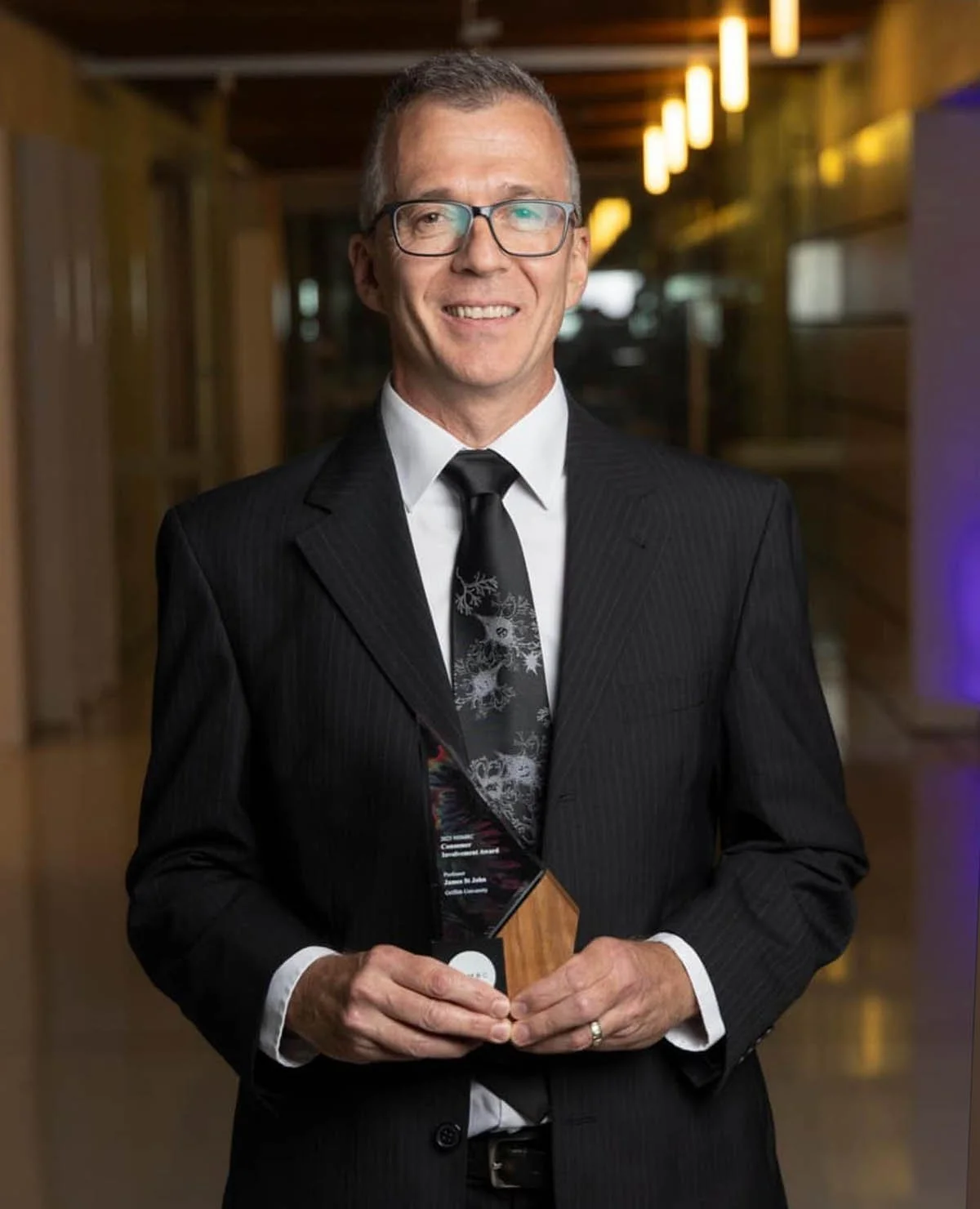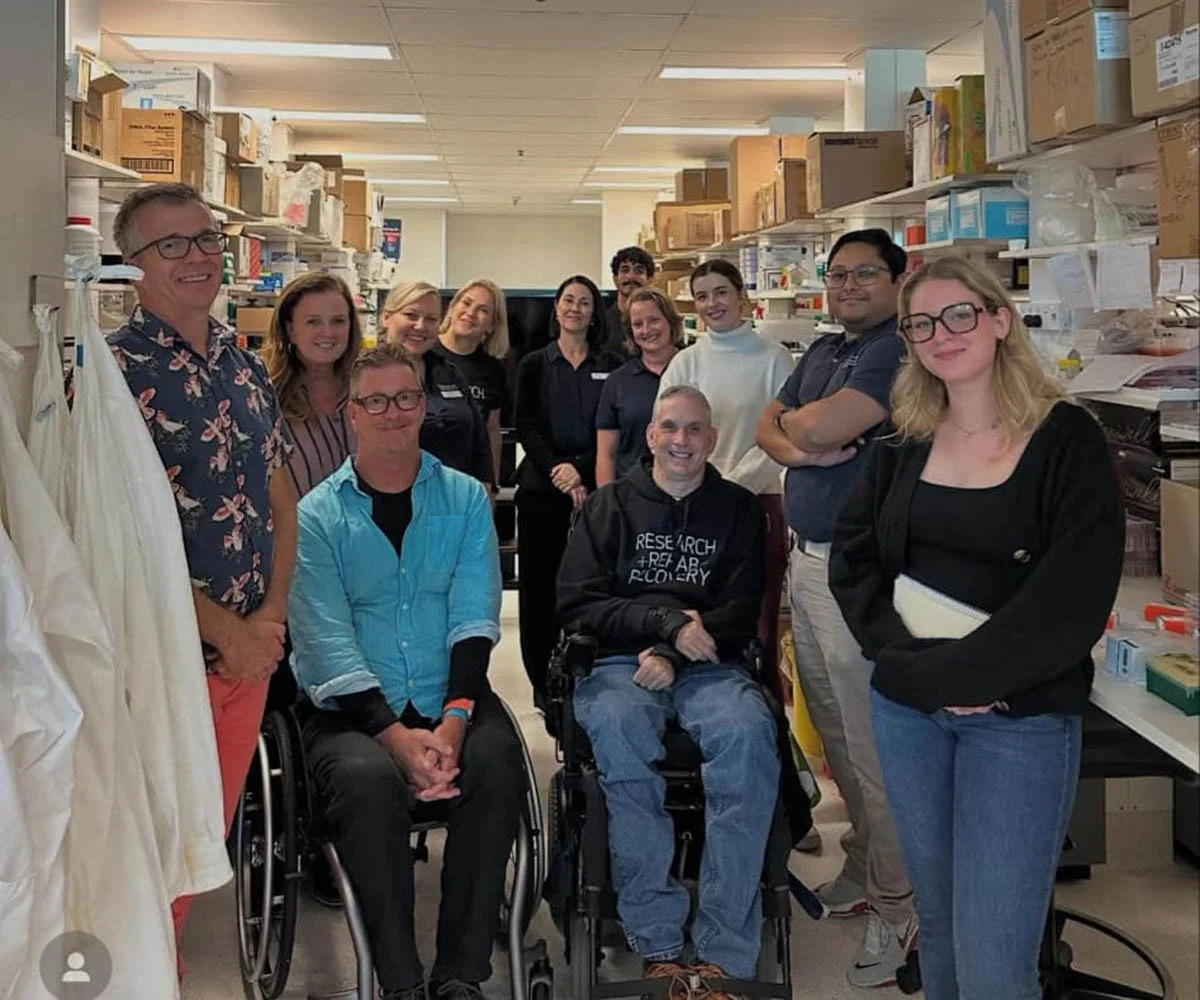Hope on the Horizon: A Step Closer to a Cure for Paralysis.
How the Perry Cross Foundation is helping to turn hope into reality
It’s not every day we get to say this—but we are so close to something that will be truly life-changing. We’re not talking maybes or far-off ideas - we’re talking real, science-backed, almost-here progress. After years of tireless research, passionate advocacy, and a whole lot of love and support from the community, clinical trials are about to kick off right here in Australia. And leading the charge? A bunch of brilliant scientists, a foundation that never quits, and one incredibly driven (and let’s be honest—pretty legendary) human being.
So, who’s making the magic happen?
The research is being led by Professor James St John and his team at Griffith University. These legends are working on a world-first treatment that could help regenerate the spinal cord using a person’s own cells. It’s cutting-edge science, but it’s also beautifully simple in some ways.
Professor James St John, Clem Jones Neuro, Griffith University (image via clemjoneneuro)
Here’s the quick version: they take special cells from the patient’s nose—yep, the nose—and use them to help repair the injured spinal cord. These are called olfactory ensheathing cells (OECs) and they’re basically the brain’s cleanup crew with a side hustle in nerve regeneration. In the nose, they help new nerves grow all the time (which is why your sense of smell can come back after a cold or covid). These nerves grow pretty slowly too - took 18 months after having covid before I could start to smell what I was burning in the oven again. Now, researchers are using them to build 3D bridges to reconnect the spinal cord and hopefully, bring back movement and sensation.
Pair that with intensive, tailored rehab, by the passionate and dedicated team That is Making Strides and you’ve got a groundbreaking clinical trial that could change lives.
Who’s behind the fundraising mission?
Perry Cross AM (image via Perry Cross Foundation)
Meet Perry Cross AM. Perry was injured in a rugby game at 19 and became a C2 ventilated quadriplegic. He was told there was no cure—and decided that wasn’t good enough. Fast forward a few decades, and Perry is now the founder of the Perry Cross Spinal Research Foundation (PCSRF), a charity dedicated to funding the research that will one day end paralysis.
And let’s just say, when Perry and his team fundraise, they don’t muck around.
Fundraising with flair
From black-tie gala dinners to quirky campaigns like SIP Week (where you drink all fluids through a straw for a week to get a taste of life with a high-level SCI), the Perry Cross Foundation knows how to raise money and awareness.
Everything is possible Gala Dinner 2025. We’re in the bottom right image one the left!! (Images via Perry X Spinal Research Foundation)
In March this year we had the pleasure of attending ‘Everything Is Possible’ Gala Dinner on the Gold Coast—an iconic night full of, laughter, live music, generous giving and dancing - lots of dancing!!. They didn’t just raise over $400,000 in funds—they raised the roof. It was an extra special night as we also got to celebrate Perry’s 50th birthday.
They’ve also hosted long lunches, golf days, marathons, and community-led challenges like “30 kilometres a day for 30 days.” Each event adds to a growing wave of support that’s pushing this research closer to the finish line.
And now… it’s happening
We had the priviledge of touring the research facility in April. Thats Mark in the Blue with me standing behind.
Drumroll, please: clinical trials are starting soon. Yep, real people will soon be part of a world-first study testing this incredible cell transplant therapy. It’s happening right here in Australia, and it’s thanks to the tireless work of researchers, fundraisers, supporters—and a whole lot of hope.
This is the moment we’ve been waiting for. And while the journey isn’t over, we are now closer than ever to a cure for paralysis. The road here has been long, but it’s paved with passion, science, and an unwavering belief that everything is possible.
If you’d like to be part of something truly life-changing and help support some of the brightest scientific minds working toward a cure for paralysis, you can make a donation here. Every bit of support brings us one step closer.
If you’d like to know more or know someone that might be eligible and interested in participating in the trials, reach out to the team at Griffith University





